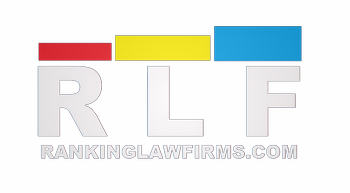Last Updated on March 25, 2024 by Ranking
Lawyers engage in lobbying activities as part of a variety of employment relationships, primarily as employees of law firms. There were approximately 80,000 lawyers in Washington alone in 2014, many of whom work in public policy. Law firm services are most in demand in areas with complex regulatory systems, such as competition law and state aid.
The introduction of lobbying practice groups in law firms is particularly visible in the USA, where law firms have been offering lobbying services since the early 1980s. According to federal lobbying disclosure data, five of the ten largest lobbying firms in 2021 are law firms, including the top two. The emergence of law firms in the lobbying market has sparked intense debate, particularly in the EU.
Law firms and the relationship between bar association regulations and lobbying regulations have received little scholarly attention. The article presents the first detailed legal comparative analysis of the regulation of lobbying services by law firms in the EU and the USA. The United States has been regulating lobbying at the federal level since the mid-21st century, and the current legislation, the Lobbying Disclosure Act (LDA), has been in force since 1995.
The United States has been regulating lobbying at the federal level since the mid-21st century. The current legislation, the Lobbying Disclosure Act (LDA), has been in force since 1995. At EU level, the focus is on the rules adopted by the EU institutions regarding the European Transparency Register (EUTR). The EUTR is soft in the sense that registration remains voluntary and institutions have few tools to force lobbyists to register and disclose information.
The entry of law firms into the lobbying market has been appreciated by researchers on both sides of the Atlantic. In the USA, where entry took place earlier than in Europe, law firms took part in “building a political business”. Lawyers are no longer “just” lawyers, but also become diplomats, educators, shepherds, and power brokers to serve the needs of clients. In this way, national law firms have evolved into transnational European law firms, serving both domestic and global clients.
Each US state and EU member state have their own bar associations. Lawyers either belong to their own national or state bar associations or to the associations of the places where they work. The Council of Bars and Law Societies of Europe (CCBE) and the American Bar Association (ABA) have also created supranational or federal standards for cross-border legal conduct.
The US and the EU differ in many respects, but they have sufficiently similar legal and political institutions. A detailed comparison of lobbying regulations is carried out using the functional method of comparative law. The article is based on the analysis of basic sources of law – legislation, soft law and principles of professional ethics. The analysis is complemented by a review of policy documents and research literature.
In the USA, in accordance with Art. 3 section 7 LDA, lobbying activity means “lobbying contacts and efforts to support such contacts”. Article 3 of the EU IIA (EC 2021) defines the activities covered by the EUTR. The EU definition also covers lobbying activities that take place in the background and do not necessarily involve contact with public officials. The third issue concerns the regulations of bar associations. These are important in determining whether law firms register and disclose their lobbying activities.
In the USA and the EU, certain types of activities have been exempted from reporting obligations. One specific exception, which I call the “legal advice exception,” applies to activities that are considered the “practice of law” in the US. The principle of confidentiality covers information provided to a lawyer, and more specifically, “any information that a lawyer receives or obtains in the context of assisting a client.”
In the US, a lawyer conducting lobbying activities is considered to have established an attorney-client relationship. Lobbying activity “becomes simply another part of the lawyer’s service to the client”. Classifying lobbying activities as legal services was not easy and took time.
In the US, a lawyer conducting lobbying activities is considered to have established an attorney-client relationship. This means that, as a general rule, any protections afforded to such relationships must be respected, including obligations of confidentiality. In Europe, the equivalent of the ABA is the Council of Bars and Law Societies of Europe.
Here is a list of the most popular and common types of musical instruments used in the music industry. Most of the instruments on this list consist of a mixture of instruments. The most common type of instrument is the guitar, but there are many other types of guitars as well.
The European Union’s lobbying group, CCBE, says lobbyists must disclose information about their clients. The European Commission has not commented publicly on this matter. The EP urged law firms to ensure that they comply with their obligations under the EUTR. The CCBE appears weak and unable to unite national bar associations to defend common positions.
The French Bar is one of the national associations challenging the CCBE policy. French lobbying specialists are represented by three associations. The CNB’s decision is significant because it opens a new political space for articulating an alternative view of the governance problem, transforming the field itself.
Law firms offering lobbying services must register unless their activities fall under the legal advice exception. Including law firms in the scope of lobbying legislation is more complicated than a quick review of the regulations would suggest. Governments typically intervene in professional regulation to protect clients and consumers. Law firms should have an interest in controlling the behavior of professionals.
This article shows how the regulation of law firms as lobbyists lies at the intersection of two areas of research that rarely interact. This positioning between research traditions may explain why lobbying lawyers have been neglected by lobbying scholars and legal professionals alike. The renewed interest in research in this important area also opens up new research opportunities.




